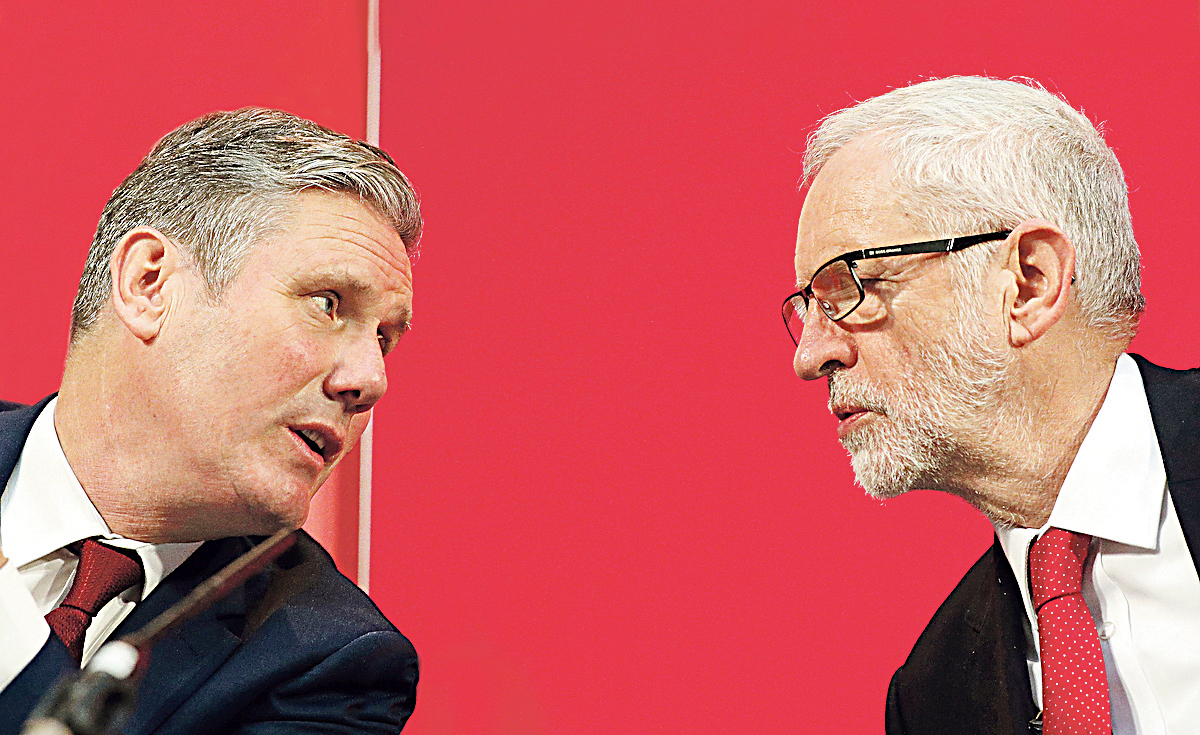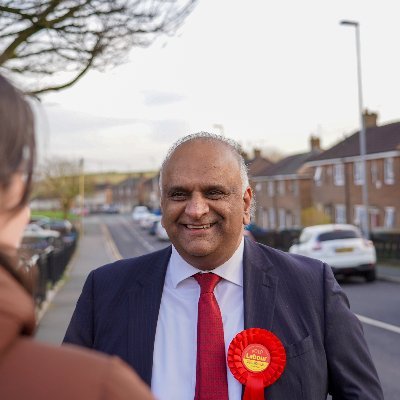OPINION: Don’t under-estimate the disastrous impact of Israeli “settler-colonial” myths
'We must confront the distorted worldview which fosters hatred and antisemitism' writes Labour Friends of Israel director Michael Rubin

The furore over the candidacy of Azhar Ali in Rochdale is a potent reminder of both the power – and destructive quality – of conspiracy theories.
Keir Starmer’s decision to withdraw Labour’s support from Ali was the right one. Not only were his comments – which suggested Israel had allowed the barbarous Hamas attacks of 7 October to occur – grossly offensive, they were also dangerous.
All conspiracy theories – the far-right Q-Anon political movement, the 9/11 “truthers” and those who claim mass shootings in US schools are “false flag operations – are pernicious.
But the multitude of contemporary conspiracy theories which surround the State of Israel – everything from claims that the IDF harvests organs from dead Palestinian to Jeremy Corbyn’s musings about “the hand of Israel” in a 2012 jihadist terror attack in Egypt – are part of long tradition of antisemitic conspiracy theories to which Jews have been subjected for centuries.
Nobody should need reminding of where such conspiracy theories can lead; the historian Norman Cohn famously described the Protocols of the Elders of Zion as “a warrant for genocide”.
Some conspiracy theories, however, appear to have acquired a veneer of intellectual respectability.

The claim that Israel is a “settler-colonial” state – prevalent in anti-Israel discourse on social media and in the protest marches in western capitals – first circulated and became widespread in academic and intellectual circles.
Left-wing intellectual anti-Zionism is driven by factors specific to the Israeli-Palestinian issue, including the long history of antisemitism on the left; the impact of Cold War Soviet propaganda; and a political alliance between the radical left and Islamist politics in the west. More recently, it has been fuelled by the growth of identity politics among some sections of the left.

But this notion diverges so far from historic and contemporary reality that it has to resort to what historian Simon Sebag Montefiore calls “a caricature, zombie history,” to sustain itself.
As a forthcoming paper LFI (Labour Friends of Israel) paper on the “settler-colonial” myth argues, it is imperative that we urgently confront this distorted worldview which fosters hatred and antisemitism and hinders the prospects of peace and a two-state solution.
One of the most pernicious effects of this mythology is to dehumanise Israelis, who are reduced to “colonialists” against whom Hamas’ slaughter is legitimised as “resistance”. Chants such as “from the river to the sea, Palestine will be free” and calls for “decolonisation” appear to call for the elimination of the State of Israel. This is both immoral and inherently incompatible with the concept of a two-state solution.
As we saw during the Corbyn years, and we see in the intimidation which too many Jewish students suffer on campuses, anti-Zionist discourse very easily and frequently spills into overt antisemitism. Describing Israel as a “settler-colonial” state demonstrates a complete blindness and insensitivity to the history and cultural identity of Jews.
The Jews who came to the territory of Israel-Palestine were neither imperialists nor colonialists. They were typically refugees fleeing antisemitic persecution within the European states where they lived. Jews were drawn to the land not for its resources but because it was the unique territorial focal point of Jewish history, faith and prayer where there had been a Jewish state until its destruction by the Romans in 70AD; and where there was an indigenous, non-diaspora Jewish population continuously living.
They did not seize or appropriate, but bought the land on which they settled, and they had an ethos of cultivating it themselves rather than seeking to exploit the labour of the local population. Unlike European colonialists, the Jews did not serve an imperial power but were motivated by goals of national emancipation.

Unsurprisingly, their cause – which became more urgent with the rise of the Nazis – attracted the sympathy of the Labour party. The party reaffirmed its support for the Jewish national home no less than 11 times between 1917 and 1945, including in the August 1917 war aims memorandum which was published three months before the Balfour Declaration. Labour also rightly opposed the National government’s 1939 white paper that severely limited migration to Mandate Palestine and thus denied Jews this final place of refuge from Nazi persecution.
Branding Israel as “settler-colonial” and calling for its “decolonisation” is thus neither accurate nor is it progressive. Instead, it encourages an approach to activism – characteristic of the BDS movement – that entrenches the conflict, rather than contributing to its resolution.
Rather than putting pressure on rejectionists and supporting moderates on both sides, such campaigns collectively demonise an entire society on one side of the conflict. In Israel, this plays into the hands of the Israeli right and its oft-professed view that the country has no “partner for peace”. For the Palestinians, the notion that their legitimate rights to self-determination can somehow be achieved by international pressure to “decolonise” Palestine (whatever that may mean) rather than through patient, painstaking negotiation and mutual compromise is simply a cruel hoax.
And those of us who have the luxury of physical and emotional distance should reject dangerous conspiracy theories and instead recognise the importance of empathy, moderation and respect for the rights of Israelis and Palestinians alike.
- Michael Rubin, director, Labour Friends of Israel (LFI)

Thank you for helping to make Jewish News the leading source of news and opinion for the UK Jewish community. Today we're asking for your invaluable help to continue putting our community first in everything we do.
For as little as £5 a month you can help sustain the vital work we do in celebrating and standing up for Jewish life in Britain.
Jewish News holds our community together and keeps us connected. Like a synagogue, it’s where people turn to feel part of something bigger. It also proudly shows the rest of Britain the vibrancy and rich culture of modern Jewish life.
You can make a quick and easy one-off or monthly contribution of £5, £10, £20 or any other sum you’re comfortable with.
100% of your donation will help us continue celebrating our community, in all its dynamic diversity...
Engaging
Being a community platform means so much more than producing a newspaper and website. One of our proudest roles is media partnering with our invaluable charities to amplify the outstanding work they do to help us all.
Celebrating
There’s no shortage of oys in the world but Jewish News takes every opportunity to celebrate the joys too, through projects like Night of Heroes, 40 Under 40 and other compelling countdowns that make the community kvell with pride.
Pioneering
In the first collaboration between media outlets from different faiths, Jewish News worked with British Muslim TV and Church Times to produce a list of young activists leading the way on interfaith understanding.
Campaigning
Royal Mail issued a stamp honouring Holocaust hero Sir Nicholas Winton after a Jewish News campaign attracted more than 100,000 backers. Jewish Newsalso produces special editions of the paper highlighting pressing issues including mental health and Holocaust remembrance.
Easy access
In an age when news is readily accessible, Jewish News provides high-quality content free online and offline, removing any financial barriers to connecting people.
Voice of our community to wider society
The Jewish News team regularly appears on TV, radio and on the pages of the national press to comment on stories about the Jewish community. Easy access to the paper on the streets of London also means Jewish News provides an invaluable window into the community for the country at large.
We hope you agree all this is worth preserving.





















